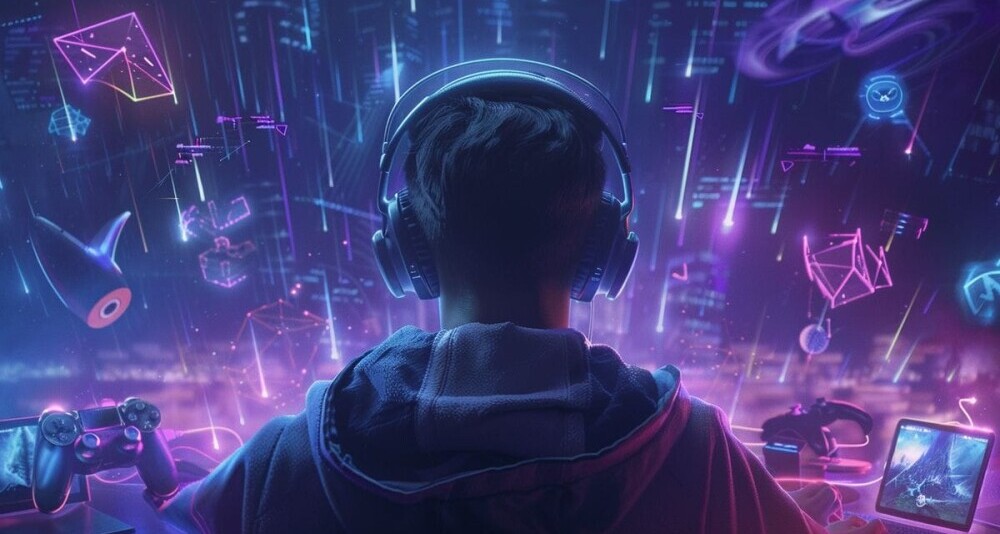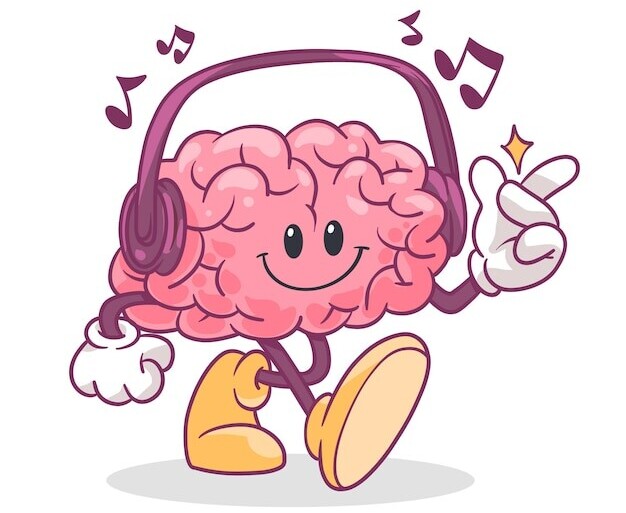
Music and sound are like the secret sauce in gaming, adding layers of feeling and immersion.
Whether it’s the eerie silence that builds tension or a full-blown orchestral score that makes your heart race, it’s all about dragging you into another world. Just think about those epic battle scenes or the subtle sound cues that tell you when danger is near.
Sound affects more than just what’s on the surface – it’s a powerful tool in storytelling, helping to set the mood and guide emotions.
Remember the last time you felt a surge of adrenaline or a pang of fear just by a change in the background score? That’s music working its magic.
Sound effects are unsung heroes, often going unnoticed but always felt. From the simple ding of a coin to the roar of an engine, sound effects give personality to actions and environments.
They prompt reactions and sometimes even guide player decisions. They’re like the subtleties in a conversation that provide more context than words alone.
Games like ‘The Legend of Zelda’ or ‘Final Fantasy’ have iconic soundtracks that are almost as memorable as the games themselves. These examples show how music can elevate a gaming experience from good to unforgettable.
It’s all about syncing what you see with what you hear, creating a cohesive and immersive journey.
The Importance of Music in Gaming: Beyond the Background Noise
Music in games isn’t just there to fill the silence. It holds the power to tug at your emotions and bring depth to the story.
It can make a triumph feel like it’s echoing across the world or transform a loss into a moment of reflection.
- Each musical theme has a purpose
Themes are carefully tuned to enhance engagement. Ever noticed how a soft melody can make a quiet moment in a game feel introspective, or how the sharp rise in tempo kicks up the energy during a chase scene? That’s no accident. The psychology behind these choices is fascinating, shaping how we experience every twist and turn.
- Genres dictate musical choices
An eerie horror game might employ unsettling soundscapes, while an adventurous platformer opts for upbeat, enriching tunes. The music acts as a guide, evoking specific emotions while matching the pace and style of the gameplay.
- Adaptive music
This type of game music changes with your actions in real time. It responds to what’s happening on screen, making each playthrough a unique auditory journey. Such dynamic soundtracks elevate interactions and draw players deeper into the gaming world, making everything feel more connected.
Cognitive Impacts: Does Music Improve Gaming Performance?

Music in gaming isn’t just about enhancing the ambience; it might also give a boost to how you play.
Many gamers find that a well-chosen soundtrack helps them focus better, becoming more in-tune with the game—almost like entering a state of flow.
It’s like the rhythm of the music syncs up with the rhythm of your actions, helping everything fall into place.
There’s a lot of talk about how music could affect your cognitive functions and reaction times. Some studies and gamer anecdotes suggest that background music can sharpen your mind, improving speed and decision-making during gameplay. It’s that fine balance between getting pumped up and staying calm.
- Emotional regulation
This is another way music affects gaming. Calming tunes can help keep frustration at bay during tough levels, while intense tracks might drive an adrenaline rush in competitive situations. How music impacts mood can also depend on personal taste, so finding the right soundtrack can be a game-changer.
- Music in eSports?
In the realm of eSports and professional gaming, music’s role gets a bit complicated. While some pros love playing with their favorite tracks blaring, others find it too distracting, preferring only in-game sounds.
It’s about finding what works for you. Some players swear by their playlists, saying it gives them that extra edge to stay competitive.
The relationship between music, concentration, and performance is as complex as it is personal.
The key takeaway? Experiment with different genres and volumes to see what elevates your game. You might just find that perfect soundtrack that makes you unstoppable.
About Julianne
Julianne is the founder and writer for the blog articles here on Power Player Zone – a nurturing online space for gamers to learn more about their passion, no matter their background or identity. As an introverted female gamer for the past 5 years, Julianne strives for inclusivity in her mission to spread the joy of video games to everyone; for her, games aren’t just for fun – they allow us to gain insight into ourselves and the vibrant cultures and communities in which we live.
